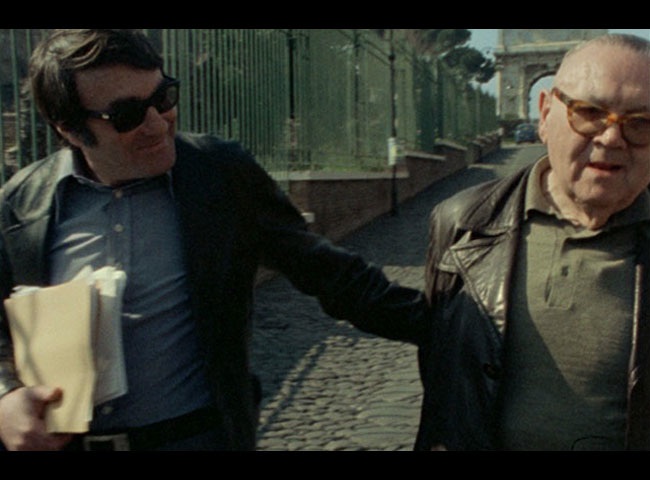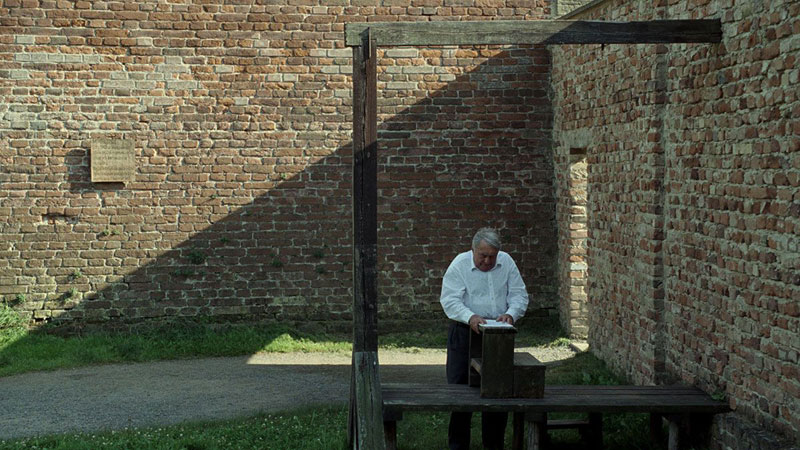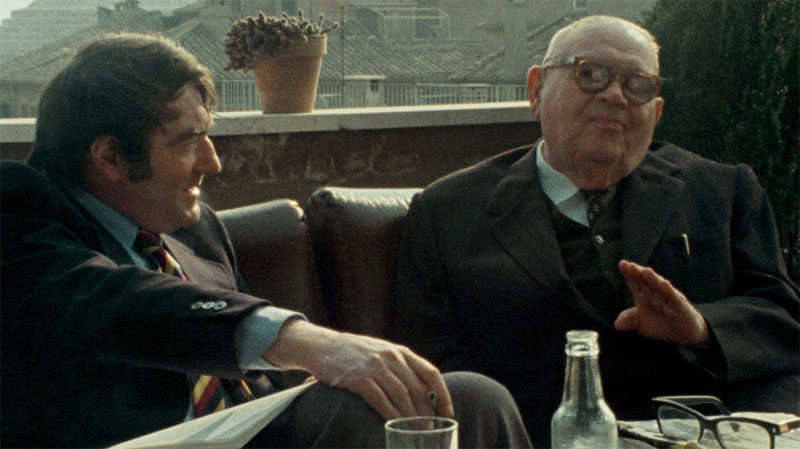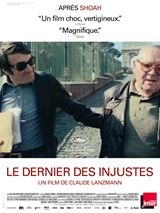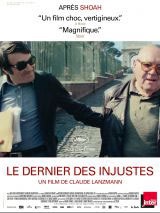Le Dernier des injustes
-
Réalisé par Claude Lanzmann • Écrit par Claude Lanzmann
-
Autriche, France • 2013 • 218 minutes • 16 mm & 35 mm • Couleur
- Réalisation :
Claude Lanzmann - Écriture :
Claude Lanzmann - Image :
Caroline Champetier, William Lubtchansky - Son :
Antoine Bonfanti, Alexander Koller - Montage :
Chantal Hymans - Mixage :
Manuel Grandpierre, Alexander Koller - Étalonnage :
Alexandra Pocquet - Sound design :
Manuel Grandpierre
- Production (personne) :
David Frenkel, Danny Krausz, Jean Labadie, Kurt Stocker - Production (structure) :
Synecdoche - Coproduction :
Dor Film Produktion GmbH, Le Pacte, Les Films Aleph - Diffuseur :
France 3 Cinéma - Participation :
CNC, Fondation pour la Mémoire de la Shoah, Région Île-de-France - Ayant droit :
Synecdoche
- N° ISAN :
ISAN 0000-0003-C8A1-0000-W-0000-0000-F
Résumé
1975. À Rome, Claude Lanzmann filme Benjamin Murmelstein, le dernier Président du Conseil Juif du ghetto de Theresienstadt, seul "doyen des Juifs" (selon la terminologie nazie) à n’avoir pas été tué durant la guerre. Rabbin à Vienne, Murmelstein, après l’annexion de l’Autriche par l’Allemagne en 1938, lutta pied à pied avec Eichmann, semaine après semaine, durant sept années, réussissant à faire émigrer 121 000 juifs et à éviter la liquidation du ghetto.
2012. Claude Lanzmann, à 87 ans, sans rien masquer du passage du temps sur les hommes, mais montrant la permanence incroyable des lieux, exhume et met en scène ces entretiens de Rome, en revenant à Theresienstadt, la ville "donnée aux juifs par Hitler", "ghetto modèle", ghetto mensonge élu par Adolf Eichmann pour leurrer le monde. On découvre la personnalité extraordinaire de Benjamin Murmelstein : doué d’une intelligence fascinante et d’un courage certain, d’une mémoire sans pareille, formidable conteur ironique, sardonique et vrai.
À travers ces trois époques, de Nisko à Theresienstadt et de Vienne à Rome, le film éclaire comme jamais auparavant la genèse de la solution finale, démasque le vrai visage d’Eichmann et dévoile sans fard les contradictions sauvages des Conseils juifs.
1975. In Rome, Claude Lanzmann filmed a series of interviews with Benjamin Murmelstein, the last President of the Jewish Council in the Theresienstadt ghetto in Czechoslovakia, the only "Elder of the Jews"* not to have been killed during the war. A rabbi in Vienna, following the annexation of Austria by Germany in 1938, Murmelstein fought bitterly with Adolf Eichmann, week after week for seven years, managing to help around 121,000 Jews leave the country, and preventing the liquidation of the ghetto.
2012. Claude Lanzmann, at 87 – without masking anything of the passage of time on men, but showing the incredible permanence of the locations involved –exhumes these interviews shot in Rome, returning to Theresienstadt, the town “given to the Jews by Hitler”, a so-called model ghetto, but a ghetto of deceit chosen by Adolf Eichmann to dupe the world. We discover the extraordinary personality of Benjamin Murmelstein: a man blessed with a dazzling intelligence and a true courage, which, along with an unrivaled memory, makes him a wonderfully wry, sardonic and authentic storyteller.
Through these three periods, from Nisko in Poland to Theresienstadt, and from Vienna to Rome, the film provides an unprecedented insight into the genesis of the Final Solution. It reveals the true face of Eichmann, and exposes without artifice the savage contradictions of the Jewish Councils.
Mot(s)-clé(s) thématique(s)
Sélections et distinctions
- 2014 • Les César - Académie des Arts et Techniques du cinéma • Paris (France) • Nommé pour le César du Meilleur film documentaire
- 2014 • Retours vers le futur • Châteauroux (France) • Sélection
- 2013 • Festival de Cannes • Cannes (France) • Sélection officielle - Hors Compétition
